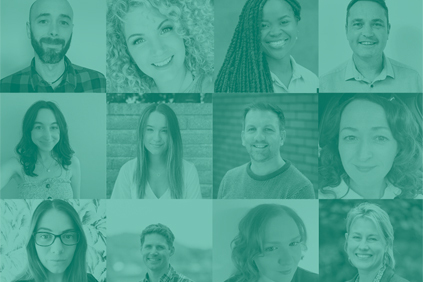As more and more interactions with public service providers move online and the people designing those online services embrace new tools and technologies to enable this, it’s our job to make sure as many people as possible come on that journey with us.
The best way to do that is to make our digital services as simple as possible for the user.
Our Digital Service Standards for Wales emphasise the need to involve people when designing these services – both the elements that will be online and offline, to co-produce better and more accessible services.
We’re lucky in Wales that there are a number of independent commissioners who use their voice to champion the needs of the sectors in society which they represent.
At CDPS, we are working closely with the commissioners, to share new solutions, highlight success stories and address challenges. Harriet and I really welcome this.
Earlier this month, we held a joint event with the Future Generations Commissioner for Wales. Commissioner, Derek Walker, shared examples of good practice, to show us and the audience how other public sector bodies are embedding better thinking about the impact of their decisions and actions on future generations. This is a great guide in our work.
At the end of January, the Older People's Commissioner for Wales published her latest report ‘Access Denied: Older people’s experiences of digital exclusion in Wales’, an insight into older people's experience of digital public services, with many feeling like they are being left behind by the shift to online provision.
The commissioner's office also attended the ‘From firefighting to future-proofing – the challenge for Welsh public services’ event which Derek Walker spoke at and urged attendees not to forget about the needs of older people when designing services. The consensus from speakers at the event was that we shouldn't feel catering for one set of people's needs means a poorer experience for others, and that we should think about the service offering as a whole, parts of which will be digital, other parts offline.
This also links with our Digital Service Standards for Wales which says you should look at the user journey from start to finish, understanding the different ways people use services, whether that’s online, over the phone or in person. Public services are for everyone, so you must consider accessibility.
The commissioner is recommending that local authorities and health boards use the Digital Service Standards for Wales and involve older people, especially people not online, in the design of services, systems and relevant research from the beginning, to co-produce better and more accessible services and policies.
We also have to address the rights of Welsh speakers to access services in the language of their choice. Welsh services that are as good as services in English. We are recommending changing the way Welsh content is generated, such that translation is not a follow-on activity but happens in small teams, typically of 3 people: a translator, subject matter expert and content designer, all working together, known as trio-writing which we have been sharing at our roadshow events.
The creative interaction in the team creates better English and Welsh content, as content is tried and tested, and enables it to be as simple as possible in both languages.
We’ve just completed a Language Matters Roadshow across Wales with the Welsh Language Commissioner to demonstrate this approach.
It was great to share a stage with Efa Gruffudd Jones, Welsh Language Commissioner, where she talked about her desire to live her life in the medium of Welsh. As service provider, we have a role to play in making that choice as easy as possible.
We look forward to working more closely with all the commissioners for mutual benefit, to support colleagues across Wales, and meet their goals.
